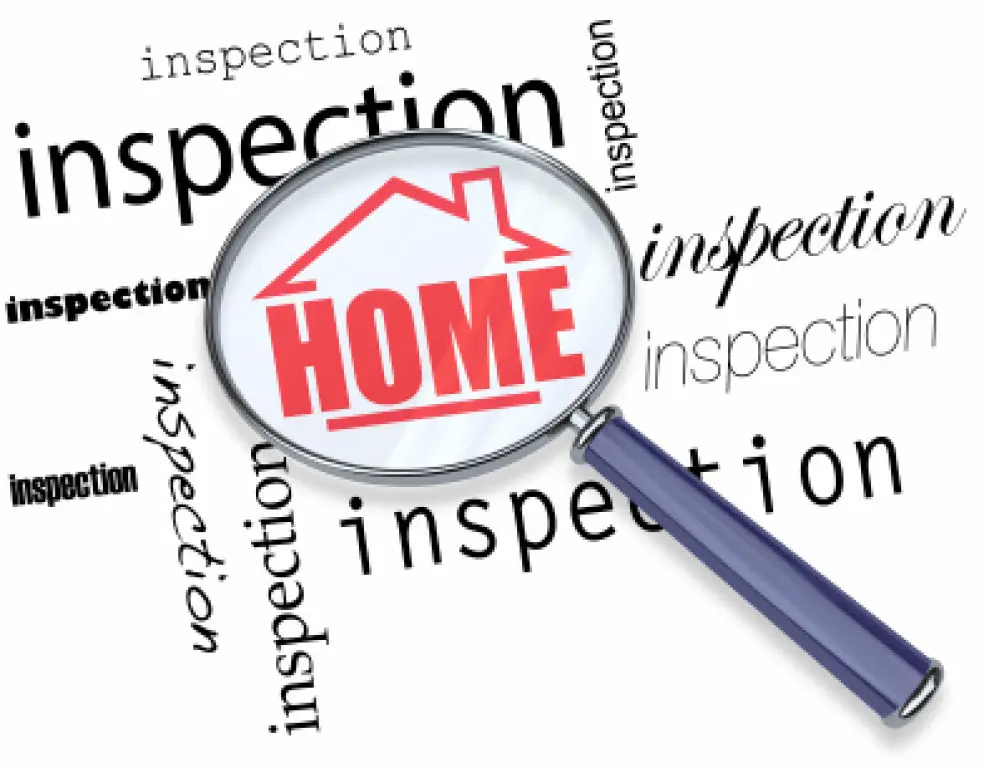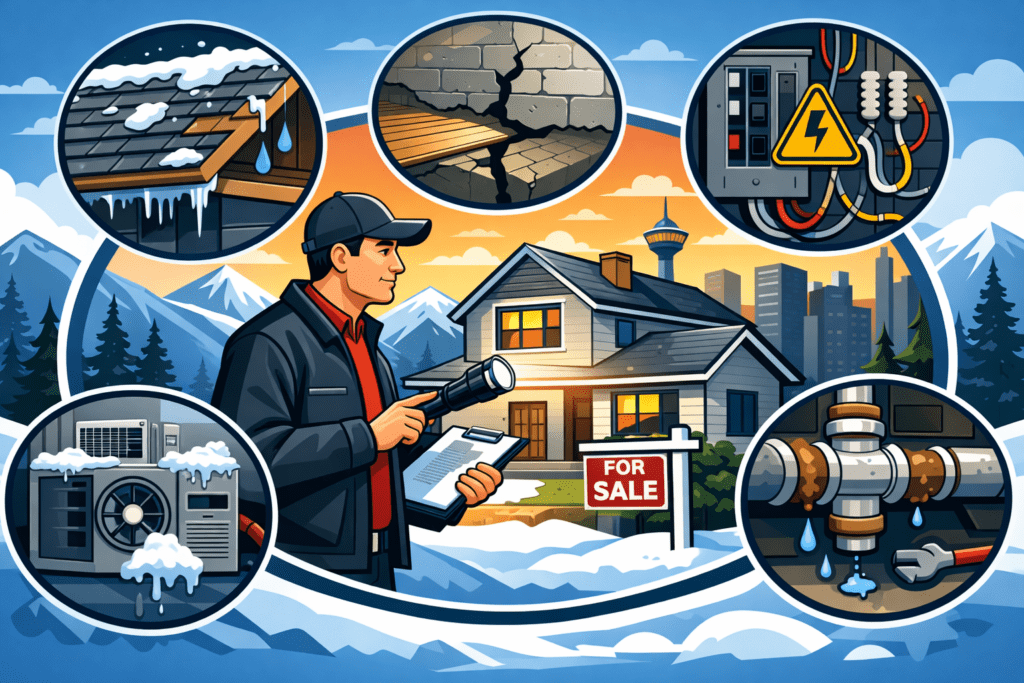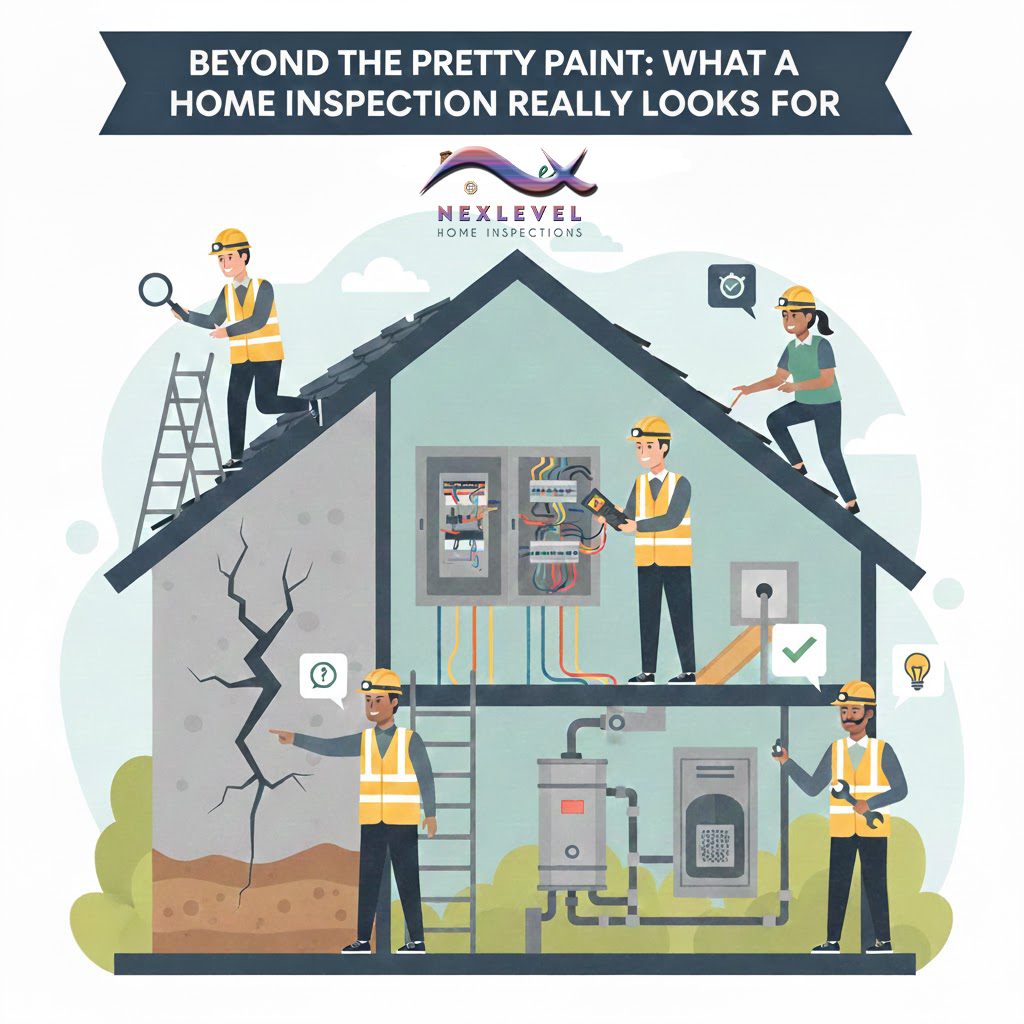Learn about Home Inspection
A home inspection is a crucial step in the process of buying or selling a home. It’s a comprehensive evaluation of a property’s condition, usually conducted by a professional inspector who is trained to assess various aspects of a home. Here’s a breakdown of what typically happens during a home inspection:
Unveiling the Puzzle Pieces: What is a Home Inspection?
A home inspection is like a detective story for your house. It’s a thorough investigation conducted by a trained inspector to uncover any hidden issues or surprises lurking within the walls, floors, and ceilings of your potential new home.
Decoding the Blueprint: What Does a Home Inspection Cover?
Think of a home inspection as a full-body check-up for your house. From the roof down to the basement, inspectors examine everything from the structure, plumbing, electrical systems, heating, and cooling to make sure everything is in good shape.
The Inspector’s Toolbox: How Do They Do It?
Inspectors come armed with gadgets and gizmos like flashlights, moisture meters, and sometimes even drones to help them see things the naked eye can’t. They’ll poke, prod, and peek into every nook and cranny to get a complete picture of your home’s condition.
Cracking the Code: What Happens After the Inspection?
Once the inspector has finished their Sherlock Holmes routine, they’ll compile all their findings into a detailed report. This report acts as your guidebook, highlighting any issues or concerns that need attention before you sign on the dotted line.
Navigating the Maze: What Does it Mean for Buyers and Sellers?
For buyers, the inspection report is like a bargaining chip. It gives you leverage to negotiate repairs or a lower price if there are significant issues. Sellers can use the report to address any problems upfront, making their home more attractive to potential buyers.
- Purpose: The primary purpose of a home inspection is to provide an unbiased assessment of a property’s condition. It helps buyers make informed decisions about their potential investment and alerts them to any issues that may need to be addressed.
- Scope: A typical home inspection covers various components of a house, including but not limited to:
- Structural elements: Foundation, walls, roof, etc.
- Exterior features: Siding, windows, doors, etc.
- Interior features: Walls, ceilings, floors, doors, etc.
- Roofing: Condition, age, signs of leaks, etc.
- Plumbing: Pipes, fixtures, water pressure, drainage, etc.
- Electrical systems: Wiring, outlets, circuit breaker, etc.
- HVAC (Heating, Ventilation, and Air Conditioning): Furnace, air conditioning, ductwork, etc.
- Appliances: Kitchen appliances, water heater, etc.
- Process: During the inspection, the inspector will thoroughly examine each area of the house, looking for any signs of damage, wear and tear, or safety concerns. They may use specialized tools such as moisture meters, thermal imaging cameras, and voltage testers to assist in their evaluation.
- Documentation: The inspector will document their findings in a detailed report, which is usually provided to the client within a few days of the inspection. This report typically includes descriptions of any issues discovered, along with photographs and recommendations for repairs or further evaluation by specialists if necessary.
- Role of the Inspector: It’s important to note that home inspectors are not necessarily experts in every aspect of home construction or maintenance. However, they are trained to identify potential problems and provide an overview of the property’s condition. If they encounter issues beyond their expertise, they may recommend further evaluation by specialists, such as structural engineers, electricians, or plumbers.
- Implications for Buyers and Sellers: For buyers, a home inspection can help them negotiate repairs or price reductions with the seller based on the findings. For sellers, addressing any issues uncovered during the inspection can increase the likelihood of a successful sale and prevent potential legal issues down the line.
In summary, a home inspection is a crucial step in the real estate transaction process, providing both buyers and sellers with valuable information about the condition of a property. It’s essential to hire a qualified and reputable inspector to ensure a thorough and accurate assessment.












Leave a Reply